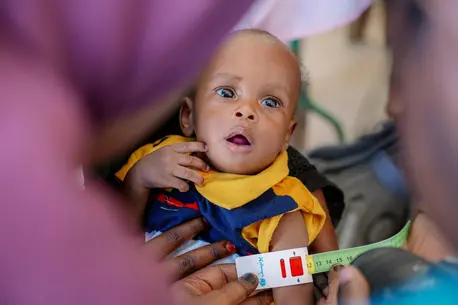
The United Nations Children’s Fund (UNICEF) has issued a dire warning over a dramatic spike in child malnutrition in Sudan’s Darfur region, urging the international community to respond swiftly to avert a humanitarian catastrophe.
The agency says it needs an additional $200 million this year to sustain and expand life-saving nutrition services.
According to new data released by UNICEF, the number of children admitted for treatment of severe acute malnutrition in North Darfur surged by 46 percent between January and May 2025. More than 40,000 children were treated during this period—twice the figure recorded during the same timeframe last year.
“Children in Darfur are starving because of the conflict and deprived of life-saving aid,” said Sheldon Yett, UNICEF’s representative in Sudan. His remarks came as part of a statement issued on Friday, detailing the growing scale of the crisis.
Recent surveys conducted in April and May across Darfur’s five regions revealed that acute malnutrition rates in 9 of 13 localities have surpassed emergency thresholds defined by the World Health Organization (WHO).
In East Darfur’s town of Yasin, a May survey reported a global acute malnutrition rate of 28 percent—dangerously close to the 30 percent threshold that constitutes one of the markers for declaring famine.
The crisis is not confined to Darfur. Severe acute malnutrition admissions have risen dramatically elsewhere in Sudan—up by over 70% in North Kordofan, 174% in Khartoum State, and an alarming 683% in Al Jazirah State.
Since April, conflict around El Fasher and the Zamzam displacement camp has intensified. Civilians face blocked roads, bombed hospitals, and restricted humanitarian access.
In a single month, nearly 400,000 people fled Zamzam camp. Many walked more than 70 kilometers to reach Tawila, where over half a million displaced people are now sheltering in desperate conditions.
UNICEF is calling on all parties to the conflict to ensure swift and unhindered humanitarian access to affected communities.
The agency is also appealing to donors to urgently meet the $200 million funding gap needed this year to sustain critical nutrition operations.
“We are at a critical moment: the lives of children depend on the world’s decision to act or look the other way,” Yett said.



